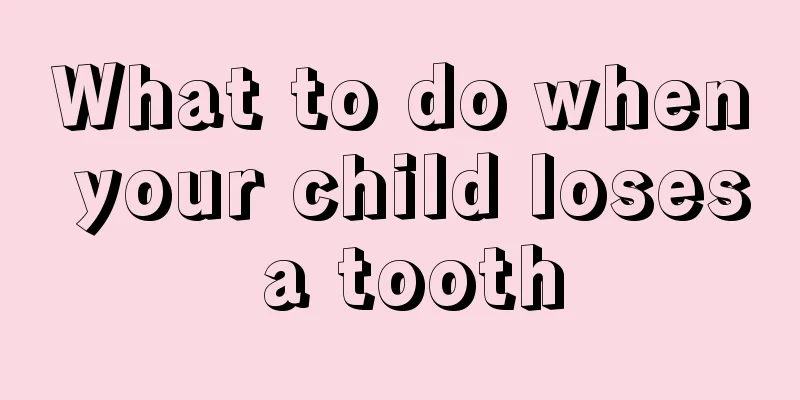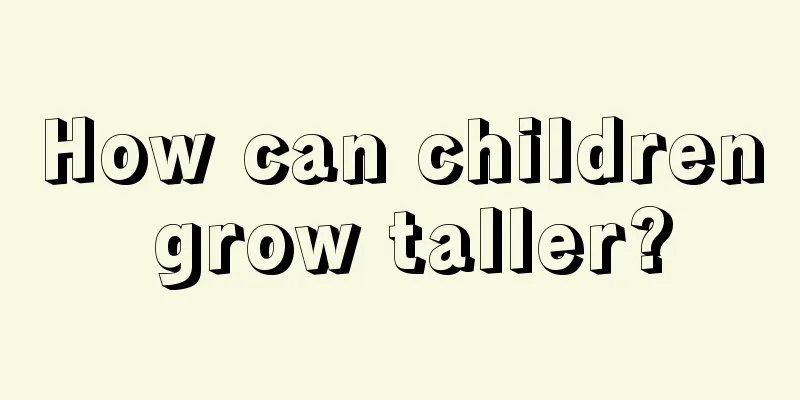What to do if your five year old is rebellious?

|
Rebellion often occurs in adolescent teenagers, and these teenagers are basically not very obedient and always act contrary to their parents' wishes. In other words, they will not pay attention to what their parents say and will only do what they want. In fact, in life, babies of a few years old can also show rebellious tendencies, which makes parents very worried. So, what to do if your five-year-old is rebellious? In fact, at the age of 5, children have their own thoughts. Sometimes we may not understand them and lose patience with them. For example, a child suddenly doesn't want to go to kindergarten, is only half-hearted in learning, only knows how to play games and watch cartoons, always loves to bargain, is careless in doing things, only likes to hear praise and good words, and cannot listen to criticism. How we educate our children is actually a great subject. Nowadays, most families only have one child, and we only become parents once in our lifetime! Therefore, children’s education cannot be neglected. In fact, children’s destructiveness is a natural nature and a manifestation of creativity. The child said he could do it In fact, many times it is because our methods as adults are inappropriate, which causes children's destructive abilities to increase. It is often because we do not have the patience to listen to children's explanations and do not really understand their inner thoughts. Let us give children some space to "destroy". As long as the children do not have major problems with principles, try not to care about them. Children who love to "destroy" will actually gain endless wealth throughout their lives - thinking, creativity and wisdom. When a child is around 5 years old, about 80% of his personality has been formed, and the rest needs to be further supplemented and shaped through future life experiences. At this time, you should give less criticism and more encouragement: too much criticism will make children feel inferior. Appropriately praise and stimulate children's enthusiasm and pursuit of beautiful things. Parents are very aware of the characteristics and defects of their children's personalities. They should praise good performance and not tolerate bad behavior and bad tendencies. They should provide appropriate education and criticism, and help their children in a targeted manner so that they can play to their strengths and avoid their weaknesses, and understand right from wrong, likes and dislikes. In fact, at this stage, the role of the father will be relatively large. Parents have to guide the children at the same time. As a mother, sometimes you will worry too much about the child and always keep talking. The child will say from time to time, you have said it many times, or the child will sometimes say, I am like this, so, at this time, the mother will often get angry. This requires parents to learn some psychological knowledge, carefully observe the psychological development of the child, always pay attention to their own behavioral norms, and set a good example for the child. In general, we should not be too involved in or control children's behavior, try to let them develop freely, and guide them in the right direction. |
<<: What kind of milk powder is good for a five-year-old?
>>: What should I do if my five-year-old child is nearsighted?
Recommend
What medicine should children take for gingivitis
Candy is one of the favorite foods of children, b...
What should babies eat to grow meat quickly?
Every child grows at a different rate, and childr...
Is it okay for children to drink mineral water?
There are several types of water we usually drink...
What should I do if my child is allergic to crabs?
If a child is allergic to crabs, the first thing ...
White spots on baby's face
Special attention should be paid to all matters w...
Why do children have thick tongue coating?
Children's health is the most important issue...
Causes of gastroenteritis in children
We know that children's organs are not fully ...
How to use medication for dermatitis in children?
If the child does not pay attention to the hygien...
There are 6 ways to diagnose polio
What are the diagnostic methods for polio? This h...
How to treat rickets in children
In early childhood, many children will suffer fro...
How should colic in children be treated?
Although baby colic is not a disease, if a baby h...
What's wrong with the white spots on the body of a three-month-old baby?
The resistance of a three-month-old baby is very ...
Is it OK to bathe a child with a fever?
In life, children's physical constitution is ...
What to do if there are white spots on the baby's face
Children's skin is obviously much more tender...
Why does my baby have a fever and his mouth is blistering?
Babies have very limited resistance and will be a...









